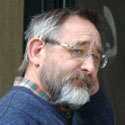Advisory Board and Editors Ecology

William J Brazelton
Associate Professor, School of Biological Sciences, University of Utah.

Mya Breitbart
Professor at the University of South Florida College of Marine Science studying viral and microbial ecology

Barry W Brook
Barry Brook, a conservation biologist and modeller, is an ARC Australian Laureate Professor and Chair of Environmental Sustainability at the University of Tasmania. Leader of the Dynamics of Eco-evolutionary Patterns (DEEP) research group and the UTAS node of CABAH, Barry is a highly cited scientist, having published three books, over 350 refereed papers, and many popular articles. His awards include the 2006 Australian Academy of Science Fenner Medal, the 2010 Community Science Educator of the Year and 2013 Scopus Researcher of the Year. He focuses on global change biology, ecological dynamics, paleoenvironments, energy systems, and statistical-simulation models.

John F Bruno
John Bruno is a marine ecologist and Professor at The University of North Carolina at Chapel Hill. His research is focused on marine biodiversity, coral reef ecology and conservation and the impacts of climate change on marine ecosystems. John earned his Ph.D. from Brown University in Ecology and Evolutionary Biology and was a postdoctoral fellow at Cornell University in disease ecology. He is currently working primarily in Belize, the Bahamas, Cuba, and the Galapagos Islands.

Viktor V. Brygadyrenko
Dr. Viktor Brygadyrenko is an Associate Professor in the Department of Zoology and Ecology at Oles Honchar Dnipro National University.
His main scientific projects include:
- Effect of heavy metal ions on the development of invertebrates.
- Morphological variability in populations of beetles in conditions of anthropogenically altered ecosystems.
- Trophic relations of species in litter macrofauna of Ukraine.
- Structure of litter macrofauna communities in forest ecosystems of Ukraine.
- Influence of medicinal plants, flavourings and source materials, approved for use in and on foods, on eggs and larvae of nematodes of mammals.
- Ecological niches of ground beetles (Coleoptera, Carabidae) in Ukraine.
- Morphometric variation in ground beetles.

Fiore Capozzi
Fiore Capozzi is a researcher in Botany at the Department of Biology at Univeristy of Naples Federico II. His research interests concern: i) studies of plants as biomonitor of air quality; ii) studies on phytoremediation and on the effects of pollutants on plant organisms; iii) studies on factors affecting the growth of plants in Space environment.

Anthony Caravaggi
Dr. Anthony Caravaggi is a Lecturer in Conservation Biology and course leader for BSc (Hons) Wildlife Ecology and Conservation at the The University of South Wales.
His work is broadly focussed on conducting research that increases understanding of species ecologies and informs conservation and management processes.

Ylenia Carotenuto
Dr. Ylenia Carotenuto is a Researcher within the Department of Integrative Marine Ecology, Stazione Zoologica Anton Dohrn, Italy.
Her research interests focus on Plankton Chemical Ecology, Molecular Ecology and Next Generation Sequencing.

Dee A Carter
Professor in Microbiology, School of Life and Environmental Sciences, University of Sydney, Australia. Member of the Marie Bashir Institute, University of Sydney. Professional Member of the Australian Society for Microbiology and Fellow of the American Academy of Microbiology.

Karen Chan
Assistant Professor, Biology Department, Swarthmore College. Adjunct Assistant Professor, Division of Life Science, The Hong Kong University of Science and Technology.

Simon Man Kit Cheung
Dr. Cheung is a Senior Research Associate of the School of Earth Sciences at the University of Bristol. He is a microbial ecologist specialized in using molecular and bioinformatics techniques to examine the dynamics, determinants and roles of microbial communities in natural and host-associated environments.

Jean Clobert
Senior Researcher (DR hc, CNRS), Station de Ecologie Experimentale du CNRS à Moulis. Member of the Acamedia Europaea.
After having developed statistical methods for the study of population dynamics in nature, my research focus has shifted since 15 years towards the study of three main topic :
* The study of dispersal evolution (causes, mechanisms and consequences). The approaches which have been developed are demographic, physiological, behavioural and genetic. Three model systems have been chosen to study the genetic and plastic responses of dispersal to variations in the environment, two lizards species, the common lizard (Lacerta vivipara, coll M. Massot) and the side blotched lizard (Uta stansburiana.coll B. Sinervo), and a ciliate (Tetrahymena thermophila).
* The study of trade offs and phenotypic plasticity. I have been interested by the link between predation/parasitism and clutch size or/other traits evolution. I alm also interested by the evolution, control and organisation of trade-offs, in particular with respect to phenotypic plasticity.
* Population structure and extinction rate. We examine the role of the different sources of heterogeneity (demographic environmental) and in particular internal (mating system, polymorphism, type of competition) in population viability.

